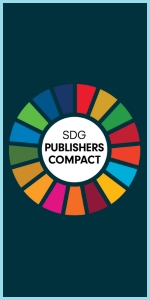
Functional Plant Biology
Volume 44 Number 3 2017
FP16078Stomatal behaviour under terminal drought affects post-anthesis water use in wheat
Terminal drought reduced grain yield in wheat by affecting grain filling. To expose the shallow part of the root system to soil dryness while the roots at depth have access to water, watering was provided only to the bottom 30 cm of the pot from anthesis. The wheat genotype that showed a higher degree of stomatal closure limited post-anthesis water uptake at depth. Grain yield was related to post-anthesis water use.
FP16202Phenotyping of plants in competitive but controlled environments: a study of drought response in transgenic wheat
Drought as a limiting factor for plant growth, development and reproduction remains a major challenge for Australian breeders and growers, and precise phenotyping techniques are needed urgently. We developed a platform where transgenic wheat plants can be grown and tested in competition and under conditions similar to those in a field situation. New imaging techniques developed for non-destructive plant growth characterisation are promising and can be used for a range of image-based plant phenotyping analyses.
FP16214Photoprotective and antioxidative mechanisms against oxidative damage in Fargesia rufa subjected to drought and salinity
Drought and salinity adversely affect plant productivity. Here, we investigated the photoprotective and antioxidative mechanisms against oxidative damage in bamboo (Fargesia rufa Yi) subjected to isolated and combined drought and salinity stresses. Relative to salinity and combined stress, F. rufa under drought exhibit highly efficient mechanism to prevent oxidative damage, which allows accelerated recovery of photosynthetic performance once the stress is removed.
FP16194Distinct growth and physiological responses of Arabidopsis thaliana natural accessions to drought stress and their detection using spectral reflectance and thermal imaging
Within this study we have demonstrated that the physiological tolerance to drought in certain Arabidopsis thaliana accessions is closely associated with the reduction of leaf area, and vice versa. This means that the ability to reduce leaf area under drought stress may represent a suitable indicator of drought tolerance. We also proved that the physiological response of plants to drought can be reliably monitored with non-invasive methods of thermal imaging and spectral reflectance.
FP16010Comparison of isohydric and anisohydric Vitis vinifera L. cultivars reveals a fine balance between hydraulic resistances, driving forces and transpiration in ripening berries
Regulation of water transport in fruits like grape clusters is pivotal for fruit development and ripening. Comparing two contrasting grape varieties showed that the differing hydraulic behaviour observed in vegetative structures also extends to their fruit. The previously observed decline in xylem water uptake into ripening berries could be explained by a decrease in the suction of the fruit rather than increasing hydraulic resistance.
FP16234Impact of fog drip versus fog immersion on the physiology of Bishop pine saplings
Fog water is known to offset plant water stress during the dry season in Mediterranean ecosystems; however, the underlying mechanisms of fog water use and its impact on physiological function has yet to be elucidated for many species. We assessed the impact of fog drip and fog immersion on the physiological function of a drought-sensitive pine species restricted to the fog belt of coastal California. Fog drip to the soil is the primary mechanism by which fog water inputs relieve stress and enhance instantaneous carbon gain of Bishop pine saplings, although foliar absorption is also a viable mechanism by which Bishop pines use fog water. Our results are important for understanding how the carbon and water relations of foggy forests may be impacted by potential changes in the fog regime.
FP16222The half-life of the cytochrome bf complex in leaves of pea plants after transfer from moderately-high growth light to low light
The cytochrome (cyt) bf complex content is the main factor limiting photosynthetic electron transport capacity, but the cyt bf life-time is not well characterised. We found that upon transferring high-light-grown pea plants to low light, the cyt f content decreased with a half-life of 1.7 days, even with the re-introduction of high light during part of the low-light photoperiod. It appears that mature leaves could not make new cyt bf complex, which was inevitably partially lost in low light.
FP16151Elevated temperature increases in planta expression levels of virulence related genes in Magnaporthe oryzae and compromises resistance in Oryza sativa cv. Nipponbare
Elevated temperature is often predicted to lead to increased susceptibility of plants to pathogens, but little information is available on pathogen transcriptome changes associated with pathogenicity at high temperature. Using Magnaporthe oryzae and rice as a model, we have shown that pre-exposure of plants to heat promoted pathogen proliferation, increased effector encoding transcripts in planta, and accelerated plant tissue necrosis. Thus, increasing temperatures may result in an increase in disease by facilitating rapid colonisation of plant tissues by the pathogen.




